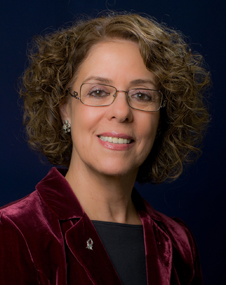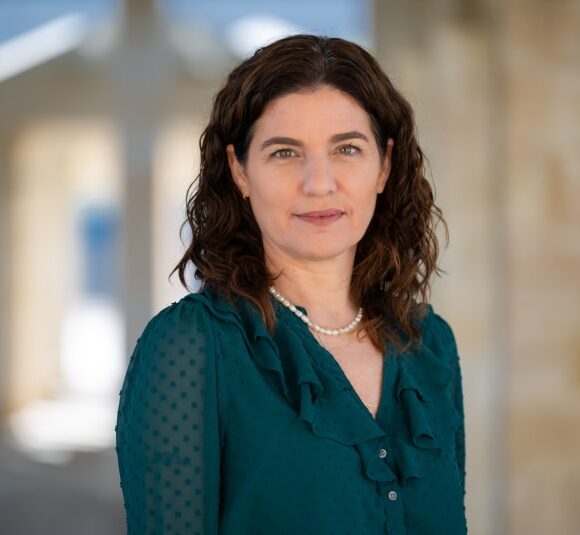
The First Woman to Lead Israel’s University Presidents
The First Woman to Lead Israel’s University Presidents
November 29, 2010
The Chronicle of Higher Education — Rivka Carmi’s new role, as the first woman to chair the Committee of University Presidents in Israel, has brought her tough challenges along with acclaim. Israeli faculty members are, on average, among the oldest in the developed world.
The ratio of faculty to students is dismal. And now pro-Palestinian activists are calling for an academic boycott of Israel that she says threatens to destroy the last remnants of co-operation between Israelis and Palestinians.
Add to that a problem she has encountered throughout her own life: that universities are not sufficiently accommodating to the needs of women.
In her new job representing the country’s higher-education institutions to the public and the government, Dr. Carmi, 62, who is also president of Ben-Gurion University of the Negev, must recommend resolutions to those issues and more.
She has been a pioneer since her youth. Born and raised in Israel, she served as an army officer during the 1973 Yom Kippur War and helped establish a unit for locating soldiers missing in action.
After graduating in medicine, she chose to do research at the fledgling Ben-Gurion University of the Negev, in Beersheba, surrounded by desert and far from the comforts of Jerusalem and Tel Aviv.
“All of my friends from medical school stayed in the center of the country. Those of us who came south shared a conviction that we wanted to make a difference by improving the health of the Negev’s underprivileged population,” she recalls.
Her groundbreaking research and clinical work with the women of local Bedouin tribes introduced new methods to halt the spread of hereditary diseases. She identified 12 new genes and three new syndrome — one named Carmi syndrome — in work that took her to Boston Children’s Hospital and Harvard University Medical School.
Rejecting an offer of a post at Harvard, the young Dr. Carmi returned to Ben-Gurion, where later, in 2000, was appointed dean of the Faculty of Health Sciences. That made her the first woman to head an Israeli university medical department. In 2006 she became president of Ben-Gurion, and the country’s first female university leader.
She says the struggle to become a dean was tougher than the race for university president: “The world of medical academia is very traditional. It wasn’t just based on merit—I had to campaign, I had to sell myself.”
Now she must look to the national horizon. After what she describes as a “lost decade” of budget cuts, the government has agreed to a five-year program to inject millions of dollars into higher education. In an interview, Dr. Carmi said she was confident the funds would restore Israeli colleges to equilibrium, but “the question is whether it will enable us to move forward at the pace that we expected.”
Dr. Carmi wants to encourage closer ties between Israel’s seven research universities and the semiprivate colleges now attended by most Israeli students, which teach humanities and social sciences but generally forgo research because of the cost.
She urges the universities to open their libraries, laboratories, and databases for use by the colleges so that students and faculty members can develop research skills.
Dr. Carmi declares it her “mission” to pursue gender equality in Israel’s universities. “The whole system is really tailor-made for men. Women have different needs, different lifestyles, and different roles that are not being at all taken care of in the system,” she says.
At Ben-Gurion she established a fund that provides female applicants with whatever they need for their research, such as training overseas or funds to write a book.
When Ben-Gurion became the first Israeli campus to open a nursing room for mothers, she recalls, she was embarrassed that it had taken until 2007. Today her campus is one of only three in Israel that offer day-care facilities.
Menahem Ben-Sasson, president of the Hebrew University of Jerusalem,
calls her “a role model”—and not just for women. “She has the capability
of hearing and then deciding—and I think that is the secret not only of
a decision maker but also a policy maker,” he says.
People are watching to see how Dr. Carmi handles calls for an
academic boycott of Israel by pro-Palestinian activists. She has already
clashed with Neve Gordon, a politics professor at her own university,
who is among the handful of Israeli academics who support such a
boycott. She says she does not understand how he continues to accept his
salary, but she will not dismiss him. “Gordon cannot be readily
dismissed. The law in Israel is very clear,” she says.
Ben-Gurion quietly maintains joint training and research projects
with Palestinian and other Arab universities. A program created by Dr.
Carmi with the Jordanian Red Crescent and financed by the university
trained a whole class of Jordanian students in emergency medicine; it
was kept under wraps for fear it would be sabotaged.
“Academia is the only area that is really keeping some kind of a
relationship with the Palestinian Authority,” she says. “If you are
going to boycott academia, you are going to end all those kind of links.
There will be nothing, no relationship whatsoever.”




